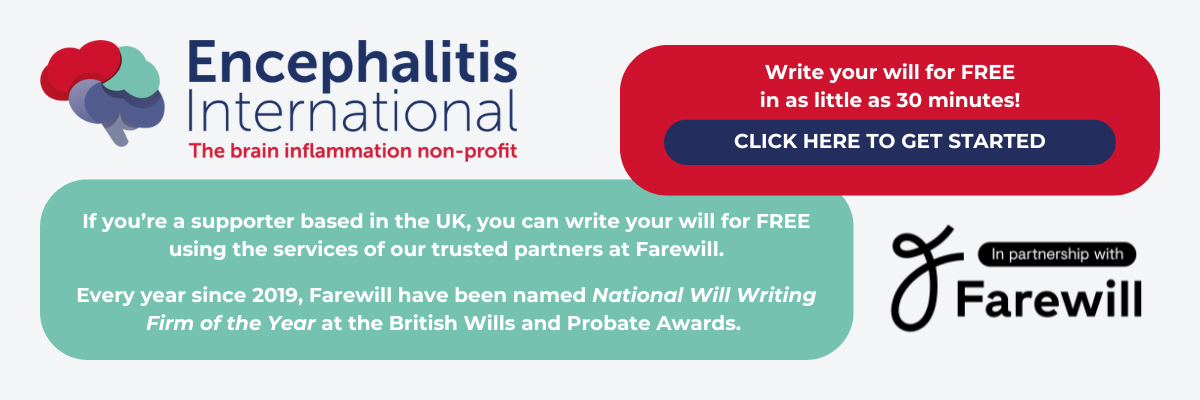The What, Why, When and Where of Will Writing

Thousands of non-profits like Encephalitis International rely on legacies – gifts that people have left in their will – to fund their charitable work across the world.
Encephalitis International dedicates campaigns to promote leaving a gift in your will and has webpages featuring this area of our fundraising:
Gift in Will – Leave a Legacy to Encephalitis International
However, we appreciate that although many of our dedicated and generous supporters may think positively about leaving a donation to benefit us, the actual prospect of writing a will is daunting and raises several questions.
What exactly is a will?
Sometimes referred to as your ‘last will and testament’, a will is a legally binding document that sets out instructions for who will inherit your estate and what should happen after you die.
As well as physical bricks and mortar that you may own (or property equity you may have), your estate includes your possessions – everything from potentially valuable items like a car, antiques or original artwork, to your day-to-day items like clothing and your mobile phone. Digital accounts and online purchases, such as music, photographs or websites are also classed as possessions. Your money is also part of your estate, whether that’s cash in the bank or the value of shares and investments.
Your will can also include notes on what sort of funeral you would like, as well as other wishes, like who should bring up your children, or look after your pets, if you have them.
Why do I need a will?
Dying without making a will is known as dying ‘intestate’. The laws related to intestacy will decide who should inherit your estate if you don’t have a will to provide your wishes in a legal format. For example, if you’re in a relationship but never married or formed a civil partnership, your partner would have no automatic right to inherit from you. These very old laws don’t suit modern family dynamics either, so stepchildren aren’t automatically considered.
Your estate may not be passed on to the people you want it to be, and this can be distressing for surviving loved ones and may cause disputes. Delays and additional costs in the administration of your estate can also occur. Making a will can avoid this.
When should I write a will?
There is no definite date when you should write your will. Most people do so when they accumulate some form of wealth (e.g. savings, assets or investments), or following significant events in life (e.g. buying property, starting a business, getting married or having/adopting children).
Re-writing or amending your will should also be considered when major changes occur in your life (e.g. a change in your financial situation, getting divorced or if people named in your will pass away).
Where do I start?!
This is what prevents many people from writing a will! But it doesn’t need to be complicated.
- Step 1: write down the value of your estate and record significant possessions. Remember to note down any outstanding mortgages, loans or other debt.
- Step 2: decide who you’d like to leave the assets in your estate to – these are your beneficiaries. You can divide these up amongst family, friends and/or the charities close to your heart.
- Step 3: name your executor, i.e., who is legally responsible for carrying out your wishes in accordance with your will. This can be an adult family member, friend or a professional (e.g. solicitor, licensed legal professional or accountant).
- Step 4: Write your will. See below for advice on who you can ask for help.
- Step 5: Sign your will. To be legally binding, you must sign it in the presence of two independent witnesses, i.e., people who are not going to inherit anything from your will.
Where do I go for help?
You can write your will yourself, but it’s a good idea to get help from a reputable will-writing company or legal advisor. Depending on the complexities of your personal situation and estate, you may need specialist legal advice.

